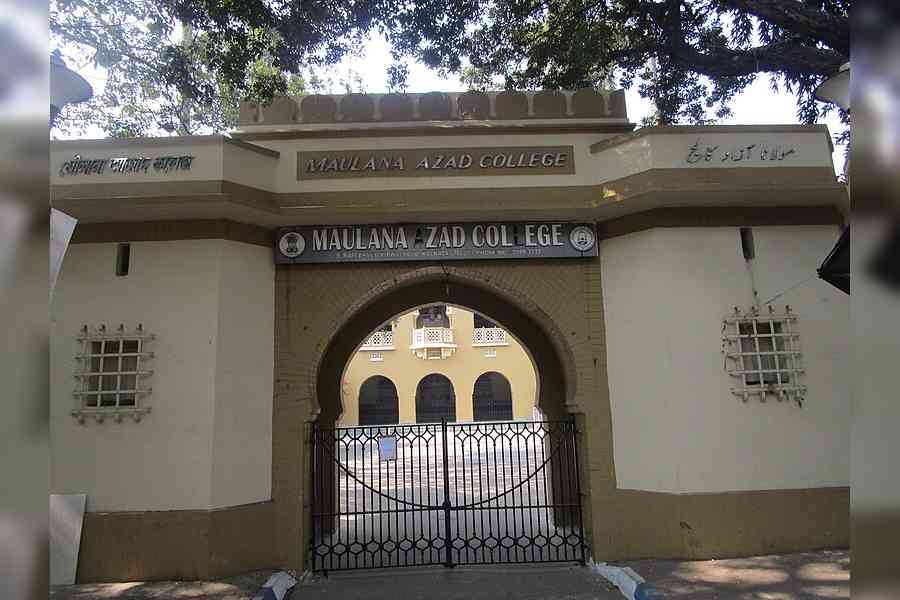As part of its centenary celebrations, Maulana Azad College is setting up an archival gallery and museum to showcase a collection of old manuscripts, journals, scientific instruments, and historic documents — many of which have never been on public display before.
The Centenary Archival Gallery and Museum will feature digitised versions of rare manuscripts collected from various institutions or preserved in the college’s custody. A highlight is a golden manuscript of the Ain-i-Akbari, the famed administrative chronicle of Mughal emperor Akbar.
Manuscripts on law, history, and religion — written in Arabic, Persian, and Urdu — are being digitised for display. Among the college’s prized holdings are Farhang Jahangiri, a Persian dictionary commissioned by Akbar; Farhang-i-Rashidi, a 17th-century dictionary by Abd al-Rashid Thattawi; and Diwan-i-Urfi, a poetry collection by 16th-century Persian poet Sayyid Muhammad, known by his pen name Urfi Shirazi, according to Niranjan Goswami, a professor of English at the college.
The museum will also include scanned copies of several historical government documents, as well as personal papers such as a 1966 leave application written by poet Bishnu Dey, a former English teacher and later vice-principal of the college. “We also have a letter Dey wrote in response to a government query on funding the publication of a poetry collection,” he added.
The collection extends beyond manuscripts. Visitors will be able to see rare journals like The Modern Review, Punch or the London Charivari, and Hibbert Journal.
“Historic scientific instruments, including an old overhead projector, a London-made brass telescope, and a film projector, will also be on display,” professor Goswami said.
Established as Islamia College, the institution’s foundation stone was laid on December 9, 1924, by then-Bengal governor Lord Lytton. After Independence, it was renamed Central Calcutta College and was later renamed Maulana Azad College in 1960.
Initially, the college admitted only male students. It began accepting students of all religions after Independence, but it was not until 1990 that it opened its doors to women.
Today, the college has 2,378 students, including 1,164 women, said principal Krishnendu Dutta.
Located at 8, Rafi Ahmed Kidwai Road, the college building is a Grade I heritage structure, listed by the Kolkata Municipal Corporation.
The college has invited chief minister Mamata Banerjee to attend the three-day centenary celebrations scheduled for December.










